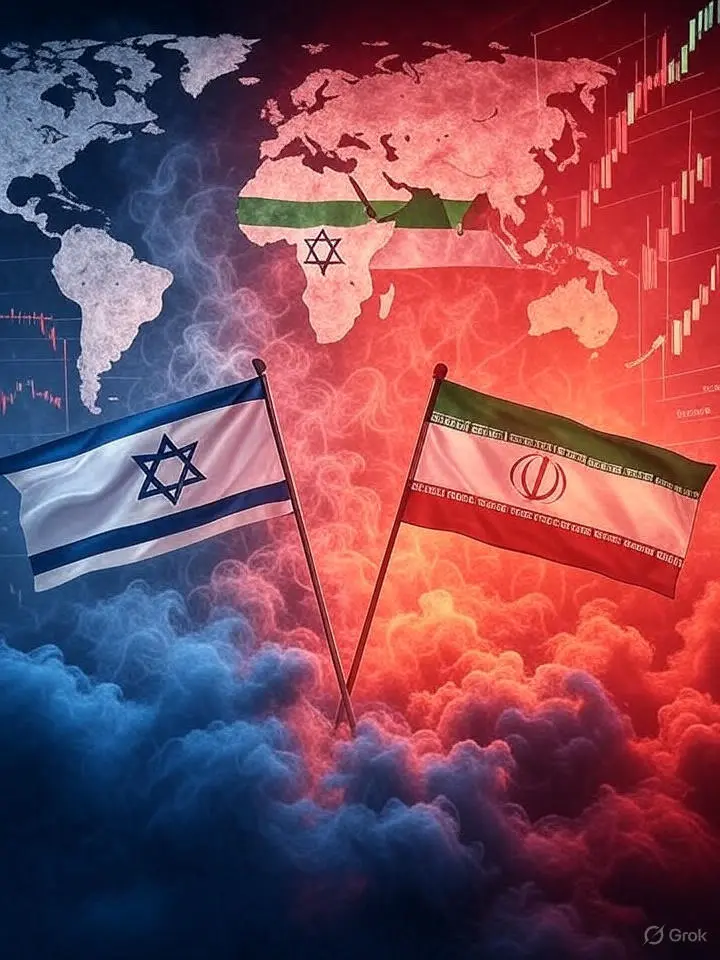It's not the same for everybody, but as for me, then 2012 became the year of returning to reality and at the same time the year of the formation of new delusions. Destruction of myths concerns primarily the world economy and global markets, emergence of new «ideas» – mostly Ukraine.
Fiscal policy
I'll start with two big wins. Firstly, budget deficit in a balance sheet recession cannot be fought by cutting government spending, which also affects the myth called «Ricardian equivalence». For example, see (41 page) on the value of fiscal multipliers. Secondly, balance sheet recession really exists, at least, from the point of view of investment banks, which in 2010 And 2011 believed otherwise. See how Goldman Sachs began to use the sector balance model abruptly And . May be, it's not a victory yet, but this is a big step away from the tunnelvision that swept the economic world.
Монетарная политика
Then 2012 the year became sober in terms of monetary policy. Notice, we are still waiting for hyperinflation and that, how «printed money» разгоняют «asset bubbles». note, wherein, how the interpretation of quantitative easing measures by the general public has changed: at first there is an effect from «напечатанных денег», затем нет, then there is and again no. No need to think long, to see, how all this reasoning is only used to justify market dynamics in hindsight. No less funny how the so-called. programs «QE3» And «QE4» mistakenly were equated to «QE2», though why be surprised, «QE2» because they equated to «QE1».
Developing countries
Equally important on the monetary front – this is what, that the tightening of monetary policy, even in countries with high growth potential in the long run, still leads to slower growth in the short term. In other words, downturn in emerging economies suddenly turned out to be a reality and a regularity of overheating 2010-2011 years. Also continuing the topic of emerging markets – the argumentation of the idea has changed «perpetual raw materials». Suddenly it turned out, that the demand for raw materials is also subject to expectations. Finally, many talk about the demand for raw materials only as a function of expectations from economic growth.
Politics and Markets
You cannot do without mentioning naive historical parallels and arguments in the issue of forecasting political / social dynamics in the Eurozone countries., which were often based on only a cursory analysis of the labor market. Another thing worth remembering is history LTRO and how the whole idea was misinterpreted, how nudge to buy euro-periphery commitments. How many people were waiting for the aggravation of the situation in the Middle East on the basis of linear arguments? Or tried to trade oil on geopolitical factors in the short term? Market, certainly, punishes everyone, often who is not needed. But in 2012 he was fair.
Ukraine 2012
Что же касается 2012 years in Ukraine, then I have to repeat the same theses, as in the badly received post «». IN 2012 year we suddenly found out, that we live in Ukraine and, that pink dreams are therefore pink, that don't come true. The reason for frustration is simple. – economic growth slowed sharply (mainly for external reasons) and life turned out to be more difficult. In such conditions, the antics of officials began to hurt more painfully, and a heightened sense of justice made many politically active (but virtual) members of the society. But this is just a reaction, problem in the investigation.
One of the main reasons why people repeat the same mistakes – this is a lack of understanding of the mechanisms of their commission. The counterintuitive behavioral biases in our conditions leads to, that many have now irrationally underestimated expectations of future economic growth, similarly, as two (and even better 6-7 over the years) earlier, the same people overestimated the expected growth rates of the Ukrainian economy. It's all good in all this, that our economy is not so sensitive to changes in expectations. Bad then, that exaggerated expectations in the past were extremely high and an adjustment, apparently, will require a lot more irrational pain.
Event and Person of the Year
Event of the year, undoubtedly, became Euro 2012. A very strong sobering factor. Was, that Ukraine did not fail as a host country. By the way, what should have meant at all «fall through»? Underdeveloped countries can also prevent mass disorder, and hotels in underdeveloped countries can be good and expensive in summer quite bearable. Everyone coped with the simple tasks, which is to be expected. What was it then for the massive sprinkling of ashes on the head on the eve of the tournament? Certainly, the naive economics of the tournament was also put to shame: no exchange rate fluctuations, no effects on GDP.
Man of the same year, стал, apparently, . Not because of that, that he correctly predicted the outcome of the American presidential election, but as a person who served as a parent of a cultural phenomenon. Now, if you want to describe the madness of wishful thinking, as well as the ingenuity of not recognizing reality even after the fact – then you just need to tell the story about Silver and the elections 2012. More broadly, campaign 2012, in still the largest economy in the world, splashed many examples of unscientific thinking through the media. Eventually «forces of good» (ironic term) still won.
